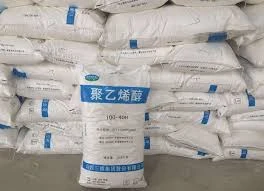HPMC The Industrial Grade Revolution
Hydroxypropyl Methylcellulose (HPMC) has carved out a significant niche in the industrial sector due to its versatile properties and extensive applications. As a derivative of cellulose, HPMC exhibits remarkable characteristics that make it indispensable in various industries, including construction, pharmaceuticals, food processing, and personal care. This article explores the key features, applications, and benefits of industrial-grade HPMC, elucidating why it has become a cornerstone material in contemporary manufacturing and formulation.
Understanding HPMC
HPMC is a non-ionic, water-soluble polymer derived from cellulose. It is synthesized through a chemical modification process, wherein hydroxypropyl and methyl groups are introduced to the cellulose backbone. This modification enhances the solubility and stability of cellulose, making HPMC suitable for a wide array of applications. HPMC is available in various grades, with industrial-grade HPMC specifically formulated for use in rigorous industrial environments and processes.
Key Properties
The industrial-grade HPMC boasts several essential properties that contribute to its popularity
1. Water Retention HPMC has excellent water retention properties, making it suitable for construction materials such as mortars and plasters. This feature allows for prolonged workability and improved adhesion.
2. Thickening Agent HPMC acts as a thickening agent, providing desired viscosity levels in various formulations. It is extensively used in coatings, paints, and adhesives to enhance their texture and performance.
3. Film-Forming Ability One of the remarkable characteristics of HPMC is its ability to form films. This property is utilized in pharmaceutical applications for coating tablets and controlling drug release.
4. Stabilization HPMC serves as a stabilizer in emulsions, preventing separation and ensuring consistent texture in products like creams, lotions, and sauces.
hpmc industri grade

5. Biodegradability Being a cellulose derivative, HPMC is biodegradable, making it an environmentally friendly choice in comparison to synthetic polymers.
Applications Across Industries
The application range of industrial-grade HPMC is vast, spanning multiple sectors
- Construction In the construction industry, HPMC is indispensable in tile adhesives, grouts, and dry mix mortars. Its exceptional water retention and adhesion properties improve workability and strength, making it a preferred additive in construction materials.
- Pharmaceuticals HPMC is widely used in the pharmaceutical industry as a binder and tablet coating agent. Its film-forming ability aids in modulating the release of active ingredients, thereby improving the efficacy of medications.
- Food Processing The food industry utilizes HPMC as a thickener, stabilizer, and emulsifier. It is commonly found in sauces, dressings, and dairy products, providing desirable texture and consistency.
- Personal Care Products HPMC is a popular ingredient in cosmetics and personal care products. It enhances the texture of creams, lotions, and gels, improving the sensory experience for consumers.
Conclusion
Industrial-grade HPMC stands out as a multifunctional agent that bridges various sectors, offering solutions to modern manufacturing challenges. Its unique properties—such as water retention, thickening ability, and biodegradability—enhance the quality and performance of end products, making it a valuable ingredient in numerous applications. As industries continue to innovate and prioritizing sustainability, the importance of materials like HPMC that merge performance with environmental responsibility will only increase. Therefore, understanding and leveraging the advantages of HPMC can lead to significant advancements in product development and formulation across diverse industrial sectors.
-
The Application and Significance of Construction RdpNewsMay.19,2025
-
Industrial Grade HpmcNewsMay.19,2025
-
Building Coating Adhesive Building Coating Adhesive HpmcNewsMay.19,2025
-
Application Of Hpmc For Detergent For Detergent In DetergentsNewsMay.19,2025
-
Application Of Hpmc Cellulose In Cement-Based MaterialsNewsMay.19,2025
-
Application Of High Quality Hpmc For Construction In The Field Of ConstructionNewsMay.19,2025




